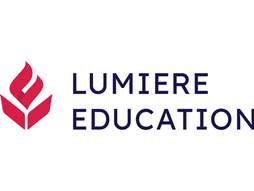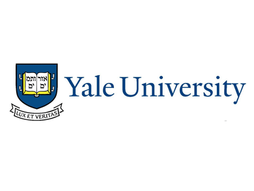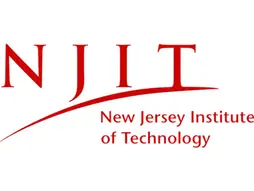8 Tips to Help You Win the Future City Competition
The Future City Competition is a transformative program aimed at middle school students in grades 6 through 8. It is not just a competition; it's a hands-on, cross-curricular educational journey that brings STEM (Science, Technology, Engineering, and Mathematics) concepts to life.
This annual competition, organized by DiscoverE, offers a unique opportunity for young minds to get into the world of urban planning, sustainability, and engineering while envisioning and designing innovative cities of the future.
Understanding Future City: A Middle School STEM Program
Future City is designed to spark curiosity and creativity among middle school students. It encourages students to explore and apply STEM concepts in real-world scenarios, immersing them in the world of engineering and urban planning. The program's core philosophy centers around the Engineering Design Process (EDP) and project management skills, providing students with a structured approach to problem-solving and innovation.
DiscoverE, the organizer of Future City, is a non-profit organization committed to fostering STEM education and creating meaningful connections between K-12 students and engineering and STEM professionals on a global scale. With a special focus on reaching under-represented and under-served students, including girls, DiscoverE aims to make STEM accessible to all. Supported by donors such as the Bechtel Corporation, Bentley Systems, Exxon Mobil, and many others, DiscoverE ensures that their programs, including Future City, remain entirely free of charge for students.
Each year, Future City presents students with a unique and compelling challenge. The 2023 challenge, for instance, asks students to design a 100% electrically powered city. This theme underscores the importance of sustainability, energy efficiency, and environmental consciousness in future urban planning. Participants are tasked with creating cities that not only meet the energy demands of their citizens but also prioritize the well-being of both inhabitants and the environment.
Who Can Participate in Future City?
Future City welcomes more than 45,000 students annually, from the United States, Canada, China, Egypt, and Nigeria. The eligibility criteria are fairly open and inclusive. Future City is open to students in grades 6, 7, and 8, whether they come from traditional school environments, homeschooling, or are members of nationally, regionally, or state-recognized youth-focused organizations. These organizations include the Boy and Girl Scouts, Boys and Girls Clubs, and 4-H. If you are unsure if your organization qualifies feel free to contact futurecity@discovere.org for clarification.
Application Deadline and Overall Timeline
The application deadline and other important dates for the Future City Competition can vary from year to year, but here's a general outline of key dates:
May: Educator/Program Leader Registration opens. This is when schools and organizations can officially register to participate in Future City.
August: The Future City Handbook is released, serving as a valuable guide for participants. Mentor Registration also opens during this month, providing teams with access to experienced guidance.
September: Future City teams kick off their projects, and the active competition phase begins. This is the time when teams start working on their city designs.
October: During this month, teams engage in research, design, and building. Judge Registration opens, ensuring qualified professionals are available to evaluate the students' projects. Educator/Program Leader Registration typically closes to focus on the competition.
January: Regional Competitions take place, where teams present their projects to judges and showcase their innovative city designs.
February: The National Competition in Washington, DC, is the pinnacle of the competition. Winning teams from regional competitions advance to this prestigious event.
Please note that these dates can be subject to change, and it's crucial to refer to the official Future City Competition website or contact the organizers for the most up-to-date information and specific deadlines for the year you plan to participate.
Structure and Format
Starting in the fall, students annually form official teams that consist of at least three students, an educator, and a volunteer mentor. Most regions welcome teams larger than three students: however, only the three official student representatives present the team and answer questions at the competition.
The team will then embark on an imaginative exploration of what it might be like to walk down the main street of a city a century into the future. What do they see, hear, smell, and feel? This sensory-rich starting point fuels their creativity as they begin to design a futuristic city with innovative solutions to some of today's most pressing sustainability issues.
During this transformative process, participants will learn to:
Utilize the Engineering Design Process: The heart of Future City, students adopt systematic problem-solving approaches and project management steps to tackle a large-scale project, mirroring what engineers do in real-world situations.
Apply Math and Science Knowledge: This competition is not just about theoretical learning; students apply their mathematical and scientific knowledge to address tangible, real-world problems. It's hands-on learning with a purpose.
Enhance Teamwork and Problem-Solving Skills: Collaboration is key. Future City teams strengthen their teamwork and problem-solving abilities by working together effectively to create a comprehensive and innovative city design.
The learning opportunities are boundless. Students not only acquire STEM knowledge but also develop critical skills that will serve them well in their future academic and professional journeys.
The Path to Victory: National Competition in Washington, DC
The ultimate goal for many Future City teams is to secure a spot at the National Competition held in Washington, DC. This event is a culmination of months of hard work, innovation, and dedication. Teams that win their Regional Competition earn the honor of representing their region at the finals. Future City goes the extra mile by providing round-trip transportation and hotel accommodations for the US team's three student presenters, educators, and mentors. This ensures that financial constraints do not hinder any deserving team's participation.
The National Competition is not just about prestige; it's also an opportunity to network with like-minded individuals and professionals in the STEM field. It's a chance to showcase your city's vision and innovative solutions to a national audience and esteemed judges.
What are the Awards at Future City?
At the Future City Finals, the top prizes are as follows: The first-place team is awarded a prize of $7,500 for their organization's STEM program, coupled with an exciting trip to the U.S. Space Camp in Huntsville, Alabama, which accommodates up to five team members, including three students, one educator, and one mentor. This prestigious award is generously provided by Bentley Systems. The second-place team earns a substantial prize of $5,000 for their organization's STEM program, generously sponsored by Shell. Meanwhile, the third-place team secures a commendable prize of $2,000 for their organization's STEM program, courtesy of the Bechtel Corporation. The 4th and 5th place teams are also recognized with $750 each for their organization's STEM program, thanks to the support of NCEES. These prizes not only celebrate outstanding achievements but also contribute to the growth of STEM education.
Is the Future City Competition Prestigious?
The Future City Competition enjoys a recognized status within the educational and STEM competition landscape. Its reputation is bolstered by its longstanding commitment to fostering innovation and sustainability among middle school students. With support from notable organizations and donors like the Bechtel Corporation and Exxon Mobil, the competition offers a platform for students to address real-world urban challenges with STEM solutions. The opportunity for winning teams to compete at the National Competition in Washington, DC, underscores the competition's prestige.
Eight Tips to Help You Win the Future City Competition:
Now that we've covered the intricacies of the Future City Competition, let's focus on eight tips that can significantly enhance your chances of success.
1. Start with your submission early The path to victory begins well before the official competition starts. Give your team ample time to research, brainstorm, and refine your city design. Starting early allows for greater creativity and depth in your project.
2. Pay close attention to the theme A deep understanding of the competition's theme is the foundation of a winning project. Dedicate time to extensive research, and ensure your team has a comprehensive grasp of the challenges and opportunities related to the theme.
3. Utilize official resources
Make the best use of the official Future City resources provided by the organizers. These resources often include comprehensive guides, webinars, and mentorship opportunities that can provide crucial insights and guidance throughout your project's development.
4. Collaborate effectively
Effective teamwork is not just a recommendation; it's a necessity. Assign clear roles and responsibilities within your team to ensure each member contributes their skills and expertise to different aspects of the project. Collaboration fosters innovation and efficiency.
5. Focus on sustainability
Given the recurring emphasis on sustainability in the competition, prioritize eco-friendly and sustainable solutions in your city design. Showcase your in-depth understanding of environmental issues and your team's innovative solutions to address them.
6. Keep an eye out for details
The devil is in the details, as they say. Pay meticulous attention to every aspect of your project, from the research essay to the physical model of your city. Attention to detail demonstrates professionalism and commitment to your vision.
7. Practice your presentation and work on refining it
Your ability to effectively communicate your city's vision and solutions is paramount. Practice your presentations thoroughly to ensure clarity, confidence, and persuasiveness. Effective communication is often the key to winning the judges' hearts and minds.
8. Embrace the learning journey
While winning the Future City Competition is a remarkable achievement, remember that the true value lies in the learning journey itself. Each step of the competition equips young minds with the skills, knowledge, and passion to tackle the challenges of tomorrow's cities. Embrace the learning process, celebrate your achievements, and be proud of the positive impact you're making on the future of urban planning and sustainability. Research case studies of other cities so that you may better understand global ‘best practices’ and success stories for the competition.
Our review
The Future City Competition is a great experience for middle school students because of its multi-faceted thinking and introduction to the engineering design process. Not to mention the focus on sustainability and teamwork!
By understanding the program's core principles, eligibility criteria, and key dates, participants can embark on a journey that combines STEM education, innovation, and teamwork. Winning the competition is a remarkable achievement, but it's just one aspect of the great learning experience that Future City offers.
As you prepare to take on the challenge of designing a 100% electrically powered city, remember that your efforts are contributing to a brighter and more sustainable future. Whether you find yourself presenting at the National Competition in Washington, DC, or embracing the learning journey at the regional level, you're part of a community dedicated to solving some of the world's most pressing issues. Embrace the eight tips provided here, and remember that success in Future City is not just about winning but about shaping a future where innovation and sustainability are key.
One other option –Lumiere Research Scholar Program
If you are passionate about research at the intersection of engineering, urban planning and sustainability, you could also consider applying to the Lumiere Research Scholar Program, a selective online program for students I founded with researchers at Harvard and Oxford. Last year, we had over 4000 students apply for 500 spots in the program! You can find the application form here.
Stephen is one of the founders of Lumiere and a Harvard College graduate. He founded Lumiere as a PhD student at Harvard Business School. Lumiere is a selective research program where students work 1-1 with a research mentor to develop an independent research paper.













